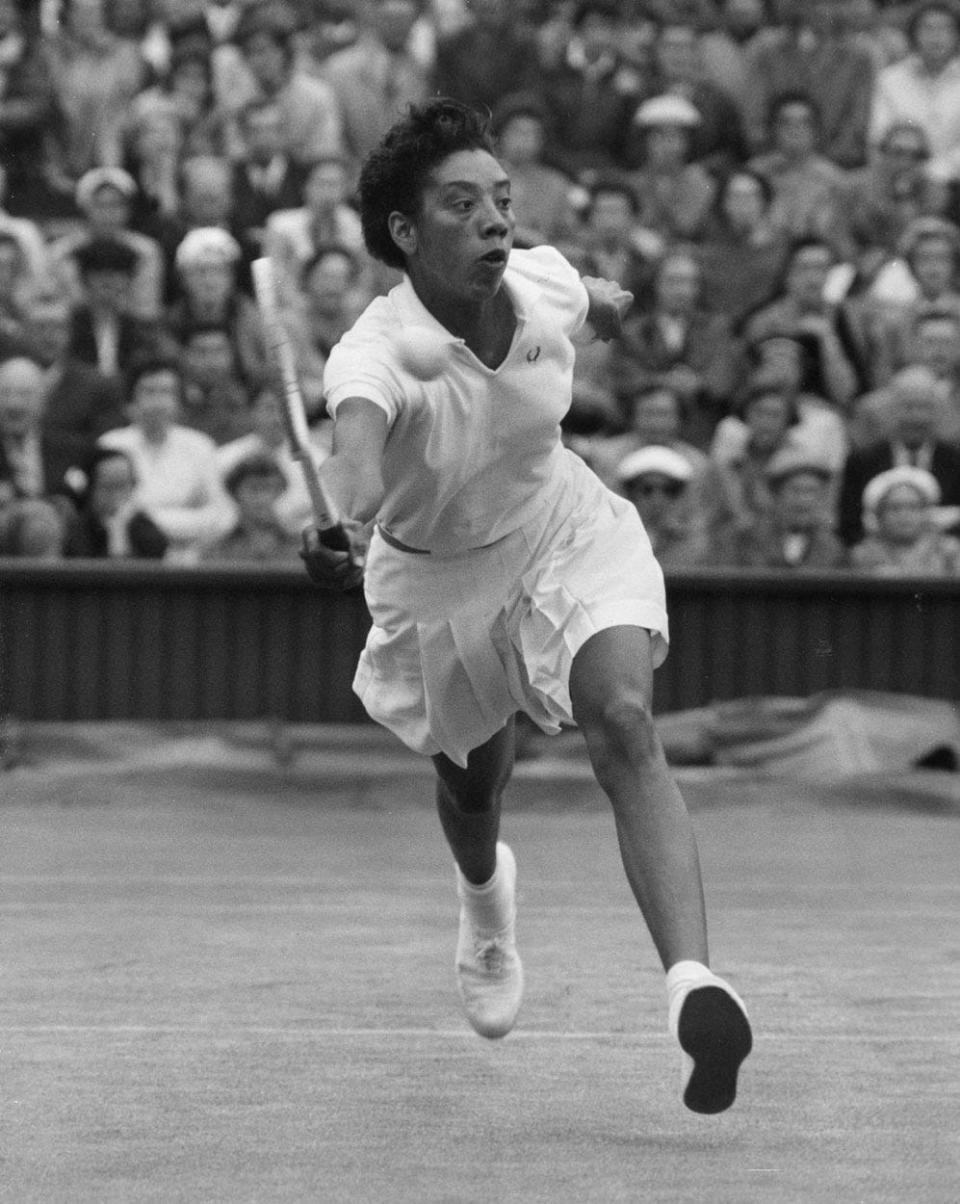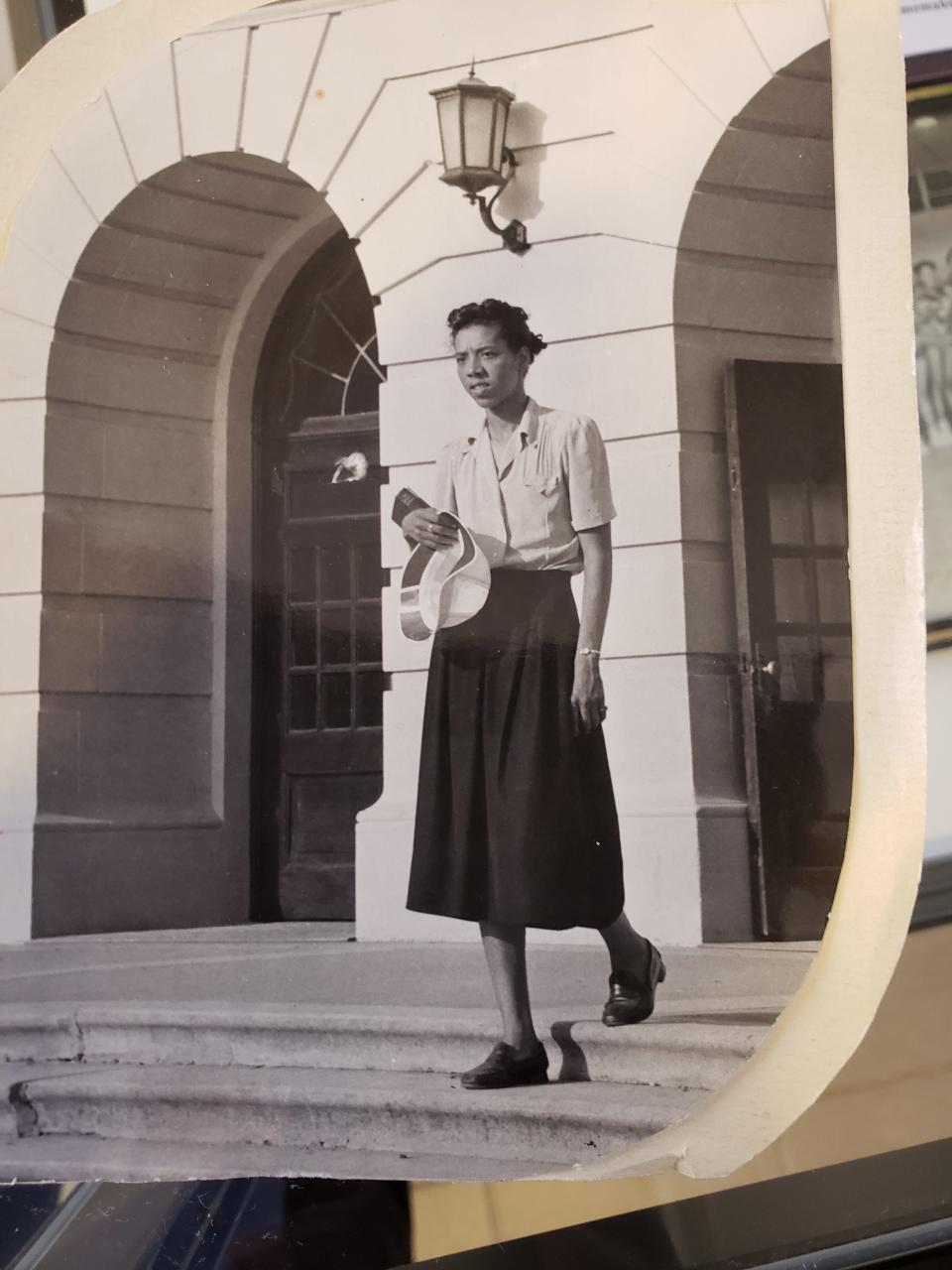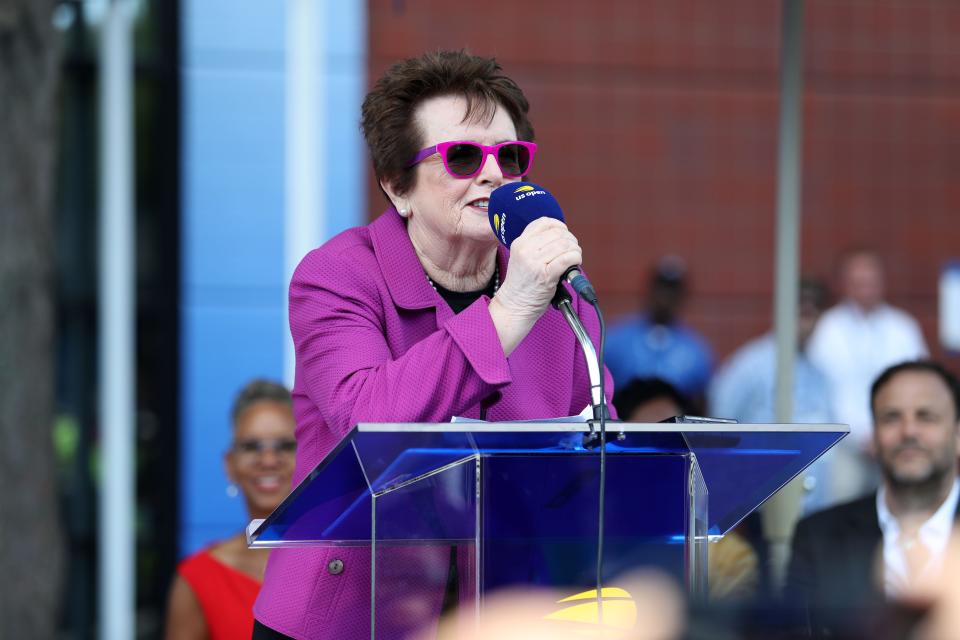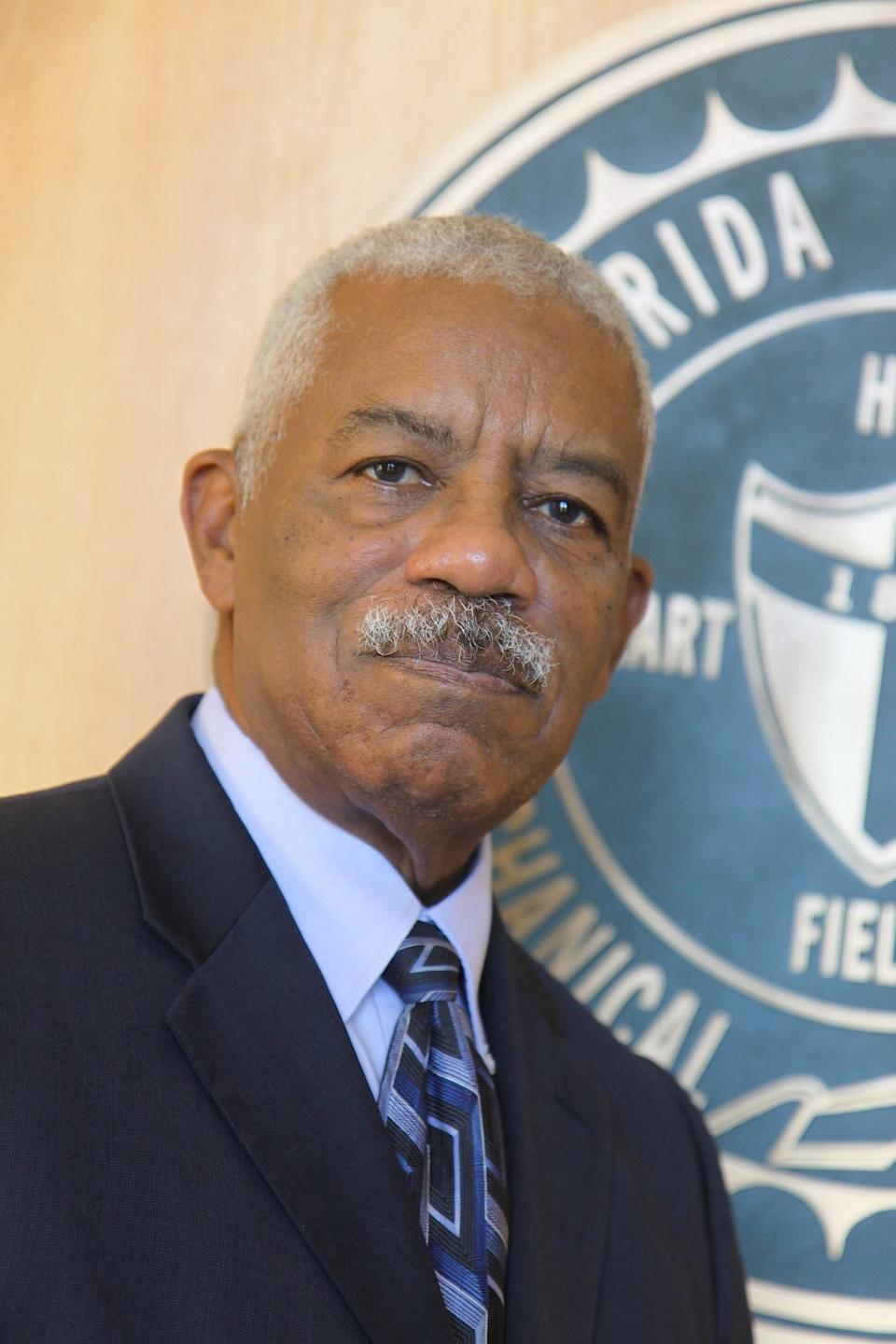Eddie Jackson: Reviving the spirit of FAMU's greatest athlete, Althea Gibson
The late Robert “Bullet Bob” Hayes, two-time Olympic gold medal and National Football League Hall of Fame member, usually rises to the top of the list, when Florida A&M University alumni debate the question of who the university’s greatest athlete is. Hayes was once called the fastest man in the world. But Hayes didn’t change the world. Althea Gibson, FAMU alumnae, class of 1953, did.

On August 28, 1950, when Gibson became the first Black American to break the color barrier at the West Side tennis club at Forest Hills, Queens, New York, she was in her freshman year at FAMU. And although she won her first game and was leading in the second, a thunderstorm postponed the event to the next day where she eventually lost. But her performance signified an end as well as a beginning of a new tennis world to come.
Gibson arrived on campus in the fall of 1949 already regarded as a phenomenal tennis player, but only within the all-Black American Tennis Association. Student life was difficult for Gibson who was not used to obeying strict rules and regulations. She smoked, broke curfew, was prone to fight and played pool in Young Hall, an off-limits men’s residence hall.

At some point, FAMU began to change her life. She made friends, joined organizations, earned good grades, became chairperson of the Student Disciplinary Committee, and successfully pledged Alpha Kappa Alpha Sorority, Inc. When Gibson stepped onto the court at Forest Hills, she was on her way to becoming one of the most articulate and graceful competitors in women’s tennis.
FAMU’s acting president, H. Manning Efferson, “The Marching 100” and students met her at the train station on Railroad Avenue after her historic debut. Gibson’s remarkable ascendancy among the tennis greats of her day, and winning 11 Grand Slam titles, numerous singles and doubles matches, is one of the greatest sports stories of all time.
Her legacy is clear. Serena and Venus Williams, Coco Gauff, and numerous Black women of the present and future will have wealth, fame, and opportunities to rise to their full potential and live their best lives.
Two biographies of Gibson recently landed in bookstores: “The Life of Tennis Champion Althea Gibson”, by Sally H. Jacobs, and “Serving Herself, The Life and Times of Althea Gibson”, by Ashley Brown. These publications underscore the remarkable life of Gibson, who at that time, was the most famous Black American woman in the world. Gibson should be treated as a civil rights hero in the same way of Jackie Robinson, who broke the color barrier in Major League Baseball.
Seven decades have passed since she graduated from FAMU. And she deserves so much more than the “Althea Gibson Tennis Court” at FAMU and the posthumous honorary doctorate that has been approved by the FAMU Faculty Senate.

Those initiatives were led by current FAMU President Larry Robinson who in 2019 traveled to the USTA Billie Jean King National Tennis Center in New York for the unveiling of an Althea Gibson statue.
Thanks to a $100,000 gift in 1996 from Bill and Camille Cosby, Gibson has a nearly $200,000 endowment in the FAMU Foundation. That fund has supported education majors since the 1990s.
A separate foundation account, the Althea Gibson Fund for FAMU’s Women Sports, initiated by the 220 Quarterback Club, the FAMU Boosters and the Rattler F Club, has raised $31,000 toward a goal of $50,000 bythe end of the year.
That second fund campaign will continue past its $50,000 goal to include funds for a life-sized statue of Gibson.
If you would like to help. Make check payable to The FAMU Foundation, Account 2649 and mail to the FAMU Foundation, 625 E. Tennessee St. Suite 100, Tallahassee, FL 32308.
It’s time to revive the spirit of Althea Gibson, who died in 2005, and bring her home to FAMU.

Eddie Jackson is a retired vice president for university relations at Florida A&M University and founder and president of the 220 Quarterback Club in Tallahassee. He can be reached via email at [email protected].
JOIN THE CONVERSATION
Send letters to the editor (up to 200 words) or Your Turn columns (about 500 words) to [email protected]. Please include your address for verification purposes only, and if you send a Your Turn, also include a photo and 1-2 line bio of yourself. You can also submit anonymous Zing!s at Tallahassee.com/Zing. Submissions are published on a space-available basis. All submissions may be edited for content, clarity and length, and may also be published by any part of the USA TODAY NETWORK.
This article originally appeared on Tallahassee Democrat: Reviving the spirit of FAMU's greatest athlete, Althea Gibson
